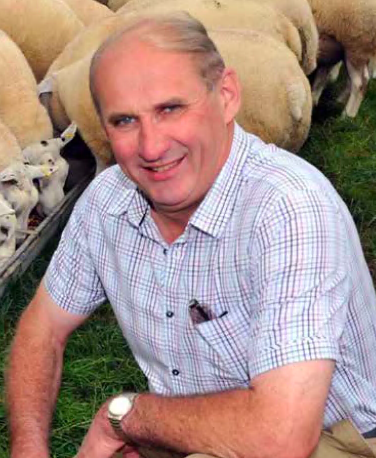A thriving sheep sector is important for rural businesses across Wales. We also cannot forget the fundamental role that lamb production has in protecting the environment. HCC’s work on the Welsh Way has shown that the ruminant livestock sector in Wales has one of the lowest carbon footprints in the World and their recent work clearly demonstrates the high nutritional value of grass fed PGI Welsh lamb.
Around 70% of all lamb sales go through the UK’s major supermarkets. This makes supermarkets a key channel for lamb but there is currently a challenging retail environment.
The latest AHDB lamb update shows that processed lamb has continued to see growth primarily driven by burgers and grills but stewing and diced/cubed has been declining in volume. Consumers are adapting their shopping habits to counteract the rising cost of living. Lamb is perceived as a more expensive meat, as a result we have started to see switching between proteins with pork and chicken being the popular alternative driving a decline in lamb volume.
New Zealand has supplied lamb to both the UK and Europe for many years. More and more containers of chilled New Zealand lamb are now hitting the UK market earlier in the season. Latest HMRC lamb import figures from New Zealand suggest that volumes are up 10% year on year. This influx is becoming an increasing problem for the UK sheep industry, it puts further pressure on the market, particularly as a lot of 2022 born lambs are still to come on the market over the next few months.
Although lamb prices are currently just about above the five years average, the uncertainty presented by unprecedented rising input costs to sheep farmers has to be recognised by retailers and government alike. The latter has a responsibility to ensure future policy is fit for purpose. With Welsh Government taking the Agriculture (Wales) Bill through the Senedd this year, we believe there is opportunity to look in detail at how future agriculture policy can continue to underpin sustainably produced, climate-friendly Welsh food and support our rural communities. This against the backdrop of the UK Government’s trade policy, a pandemic and a post-Brexit environment which continues to challenge and re-shape our food supply chains.
Other vital areas we need to look at are lamb promotion and new product development, to enable us to reverse declining lamb consumption. We must listen to consumer demands and ensure that our quality product is promoted and packaged in a way that will appeal to our consumers across the globe. HCC had success with its lamb campaign over Christmas and we have discussed with them the plans they have to promote lamb over the next few weeks. This month HCC has been attending food service trade shows both in the UK and France. Now it is more important than ever to get into a wide variety of markets.
On growing exports of Welsh food and drink, there are opportunities out there for great tasting climate friendly PGI Welsh Lamb but investment in trade diplomacy is key if inroads are to be made in new and emerging markets. NFU Cymru will continue to work to understand the challenges and opportunities facing the lamb sector in these difficult market conditions and look forward to the soon to be released HCC review of the current lamb market and future opportunities for PGI Welsh Lamb.





Comments
This article has no comments yet. Be the first to leave a comment.